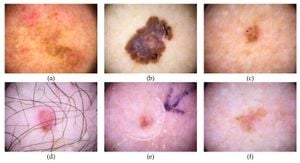Italy has recently undertaken significant steps to bolster urban safety and combat crime through two impactful agreements. The "Patto per Terni Sicura" and the "Patto per l’attuazione della sicurezza urbana" are examples of regional initiatives aimed at reinforcing security measures and increasing collaboration among local authorities and law enforcement agencies.
On Wednesday, Terni city officials signed the "Patto per Terni Sicura" to promote integrated actions and develop specific projects targeting urban safety. The objectives include enhancing crime prevention strategies and improving the response to widespread criminal activity.
Prefect Antonietta Orlando emphasized the plan’s focus on utilizing new technologies and enhancing the existing surveillance systems, including the installation of more cameras and improving public lighting to deter criminal activity. The agreement was also signed by President of the Umbria Region, Stefania Proietti; Vice President of the Province of Terni, Francesco Maria Ferranti; and the Mayor of Terni, Stefano Bandecchi.
The pact outlines the goal of reinforcing the territory’s control systems, ensuring effective cooperation between police forces and local authorities. The framework intends to strengthen the exchange of information between their operational centers to increase the effectiveness of crime-fighting initiatives.
A steering committee will be formed, coordinated by the Prefecture, consisting of members from the Region, local police, Provincial police, Questura (Police Headquarters), Carabinieri, Guardia di Finanza, and Zone Telecommunications of the State Police. The body’s role will be to guarantee continuous information sharing and jointly analyze the results obtained, allowing for adaptive strategies based on local needs.
During the signing, Prefect Orlando expressed her gratitude to the institutions participating, stating, "The aim is to eliminate, progressively, the areas of degradation and illegality, respecting the authority's competencies of Public Safety and optimizing the integration of local police." This statement highlights the collective commitment to addressing security issues within the community.
Meanwhile, the province of Lecce held its meeting of the Provincial Committee for Public Order and Security, presided over by Prefect Natalino Manno. The assembly focused on evaluating public order and urban safety, particularly in the municipality of Neviano. The meeting involved representatives from the province, the Mayor, the Vice Mayor, the President of the Municipal Council, and commanders of local law enforcement.
Prefect Manno reassured participants about the State's presence and technical support for the Municipality and the local community. He highlighted the sensitive position of current municipal administrators, particularly following past actions when the Municipal Council was dissolved due to mafia infiltration.
Underlining the importance of political unity and cooperation, Manno urged local administrators to maintain accountability and to restore citizens' trust through legitimate and transparent activities. His call for action stresses the need to restore the culture of legality and the efficiency of administrative operations.
Subsequently, Neviano's municipal council meeting opened to the public, where members signed the "Patto per l’attuazione della sicurezza urbana." This agreement aims to reinforce preventive actions and strategies against existing forms of illegality through enhanced surveillance measures. Fifteen surveillance cameras will be installed, 11 for 'contest' monitoring and 4 for bidirectional license plate reading, focusing on areas with higher crime incidence.
These surveillance improvements will be funded by ministerial grants aimed at municipalities affected by mafia-related issues. Interestingly, recent statistical trends suggest no significant alarm concerning public order, with recorded crimes declining over the past few years.
Despite this, Precise plans for coordinated control will be implemented by local law enforcement to raise perceived and actual safety levels. The gathering reaffirmed, with strong consensus from the attendees, the commitment to orientate municipal actions based on principles of transparency and ethics.
These concerted efforts reflect Italy's dedication to enhancing urban safety through community-oriented strategies and integrated governance, ensuring public spaces evolve to be safer for all citizens. With both agreements signaling optimistic strides toward lowering crime rates and increasing community trust, they represent comprehensive frameworks for urban safety.
The two initiatives point to Italy's proactive stance on urban safety enhancement, rooted in collaboration between multiple governmental layers and the police force, marking significant progress for civic safety and regulation.



